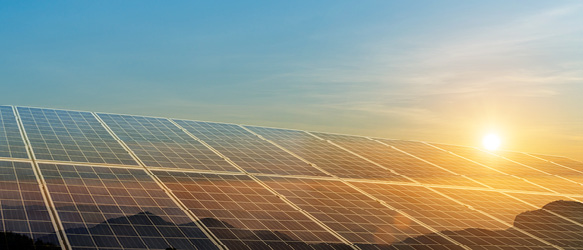In April 2021, the National Assembly of the Republic of Serbia passed a set of new laws in the field of mining and energy, including the new Law on Energy Efficiency and Rational Use of Energy (hereinafter “the Law”), which entered into force on April 30, 2021.
Hot Practice: Interview with Agnieszka Kulinska of Dentons in Poland
“In the past year or so, we have been very focused on transactional work in the renewables sector,” says Dentons Warsaw Partner Agnieszka Kulinska. “In addition to that, together with our banking and finance colleagues, my department has also handled a number of financing deals in the sector.”
Developments in the Serbian Energy Sector
The Ministry of Mining and Energy of the Republic of Serbia has recently concluded a period of public debate on a package of amendments to the country’s energy laws. The draft law that has attracted the most attention certainly is the Law on Renewable Energy Sources (the “RES Draft Law”), but there is also a Draft Law on Energy Efficiency and Rational Energy Use (the “EE Draft Law”). Serbia already has laws governing this subject matter– renewable energy sources and rational use of energy – which raises a question about what has influenced the Ministry to propose that these two areas be governed in more detail in the future.
Serbia - Amendments to Mining Legislation
The Serbian Ministry for Mining and Energy started 2021 in a busy fashion, initiating simultaneous public debates on draft amendments to key legislation in the energy and mining sectors. In the mining sector, the Ministry has offered draft amendments to the Mining Act for public hearing. The official reasons given for the reform are said to be the need to create better conditions for the development of mines, simplify administrative procedures, ensure environmental protection, and increase fiscal revenues.
Snapshot of the Hungarian Renewable Energy Sector
Facilitated by strong government support, a consolidated tendering practice, and the growing interest of both domestic and international investors, solar power is driving Hungary’s renewables market to new heights.
Romania Opens up the Possibility for Negotiated Power Purchase Agreements
The Romanian Government has recently brought important amendments to the energy regulatory framework by way of the new Government Emergency Ordinance no. 74/2020, effective May 19, 2020. According to the new regulations, new energy producing facilities, both renewable and conventional, commissioned after June 1, 2020, would be allowed to sell their output outside the current centralized energy market, at negotiated prices, with the observance of competitive rules. The amendment is intended as an exception to the general principle set out by Energy Law no. 123/2012 that transactions with electricity are carried out on the competitive market, in a transparent, public, centralized, and non-discriminatory manner.
The Gas Sector in Bosnia and Herzegovina – Regulatory Framework and Obstacles for Market Development
Bosnia and Herzegovina (BH) is a contracting party to the Energy Community. As such, it has undertaken the obligation to align its energy sector legislation and transpose the Third Energy Package in the gas sector, among others. Such alignment in the gas sector requires the adoption of state and entity-level legislation to ensure unbundling, third party access, the liberalization of the wholesale market, end-consumer protection, and adequate interconnectivity.
































